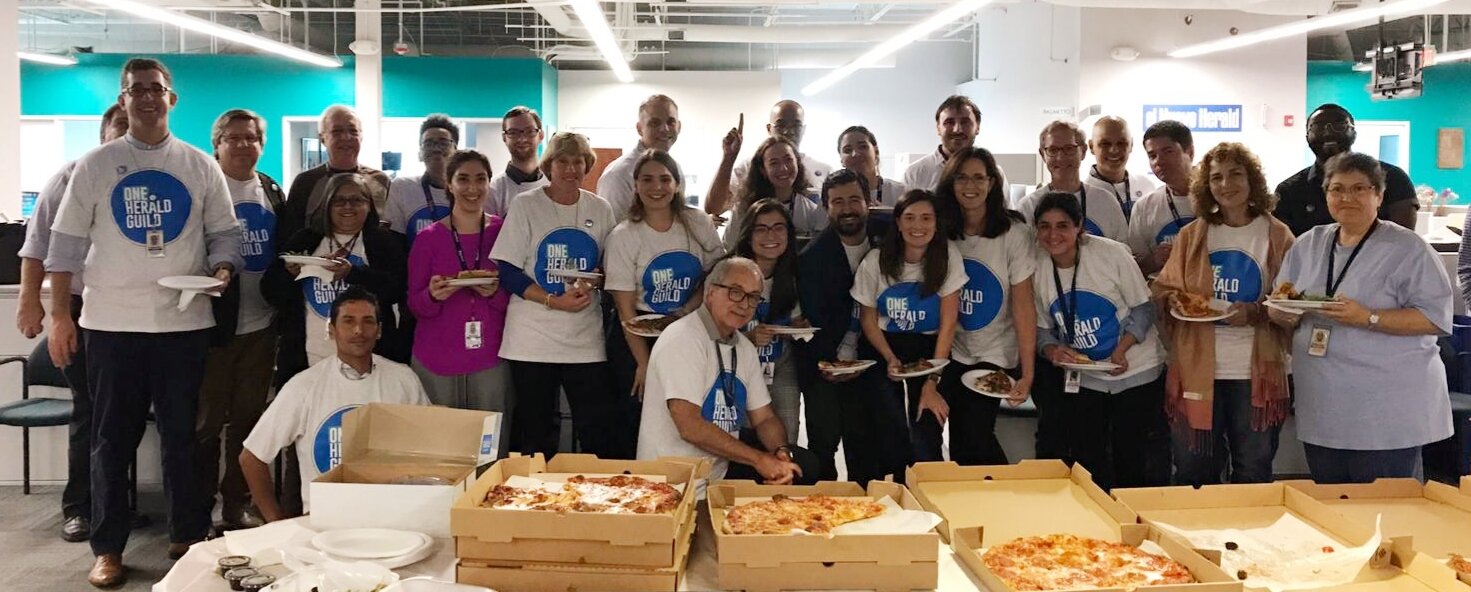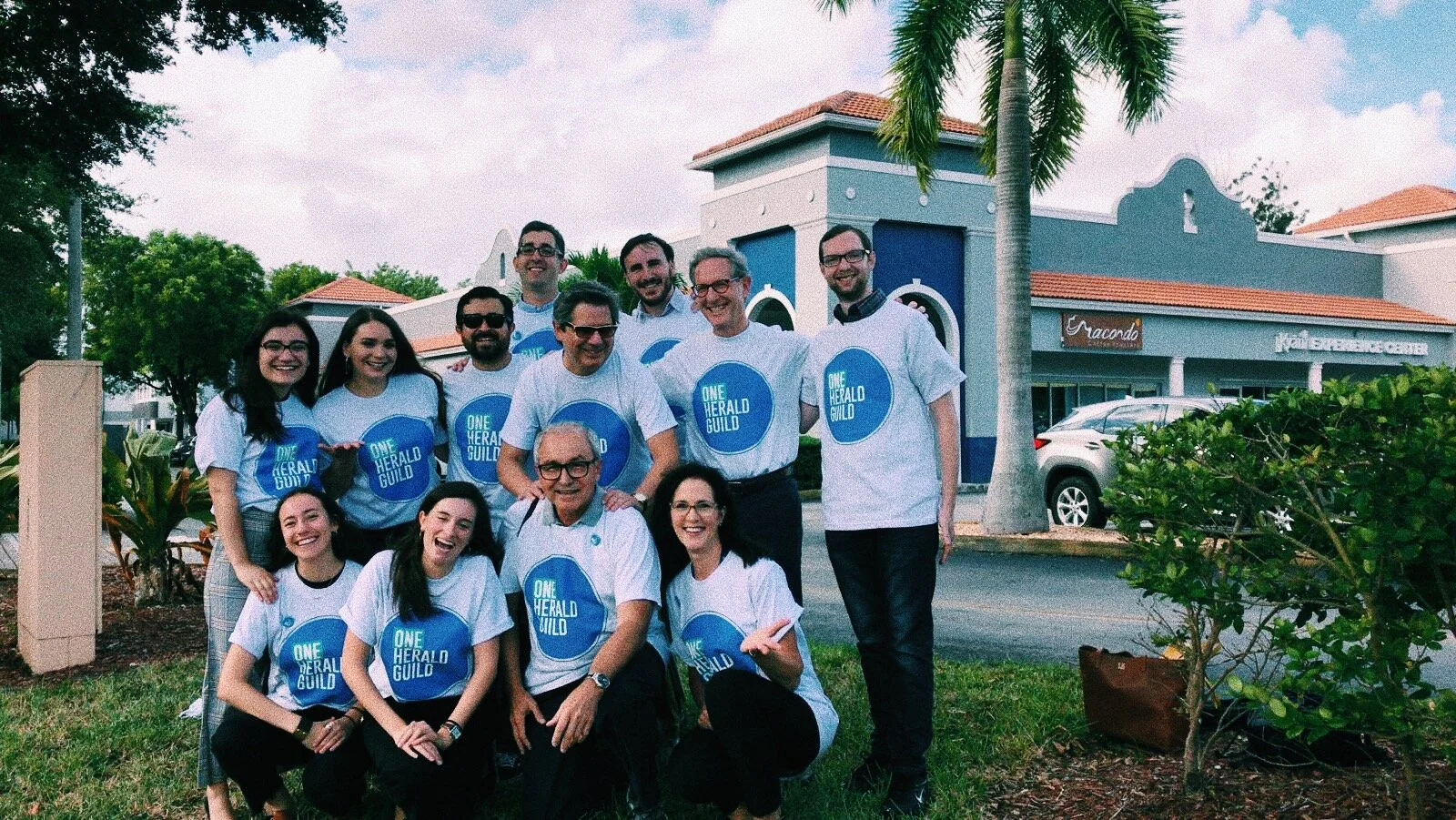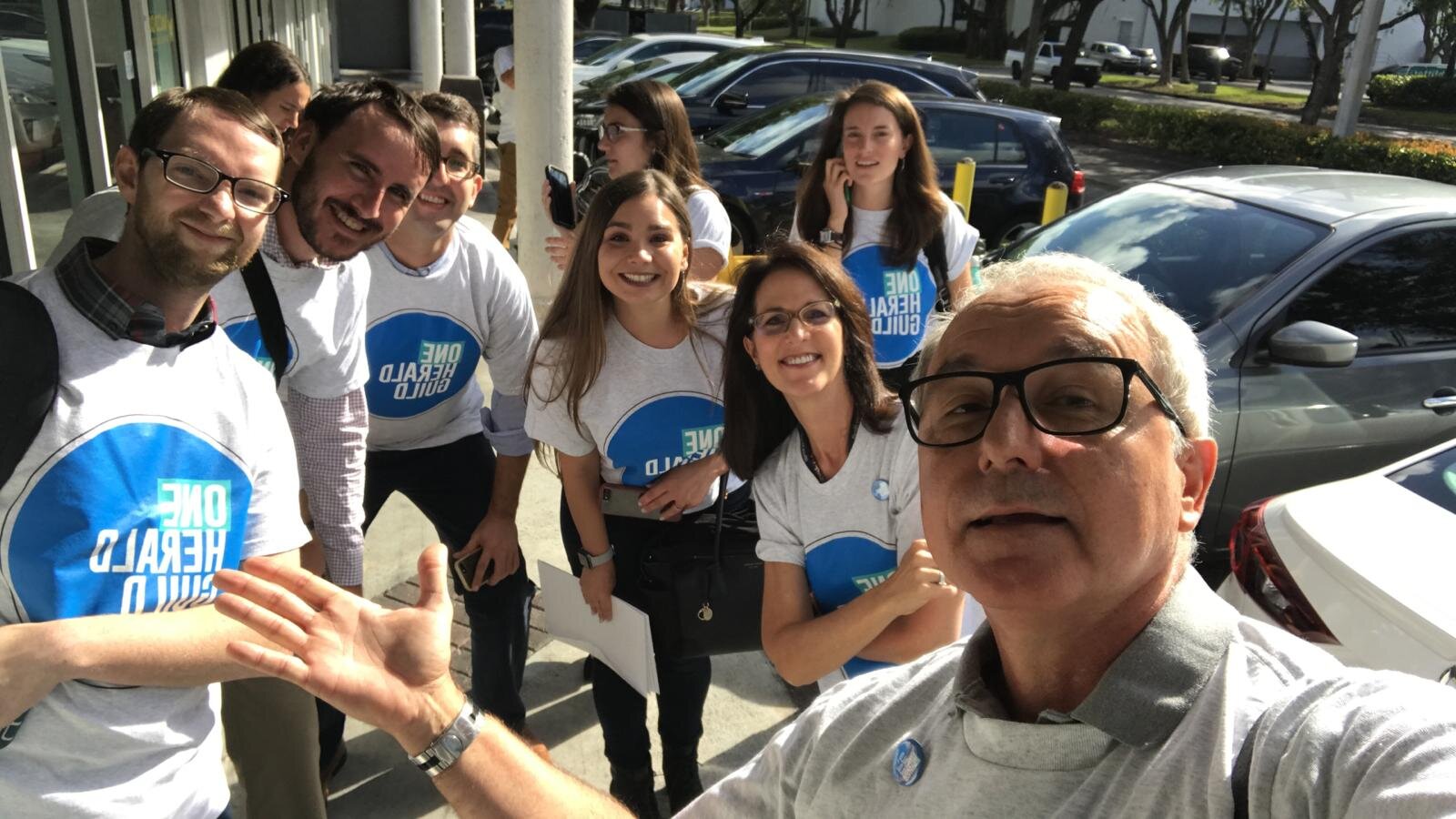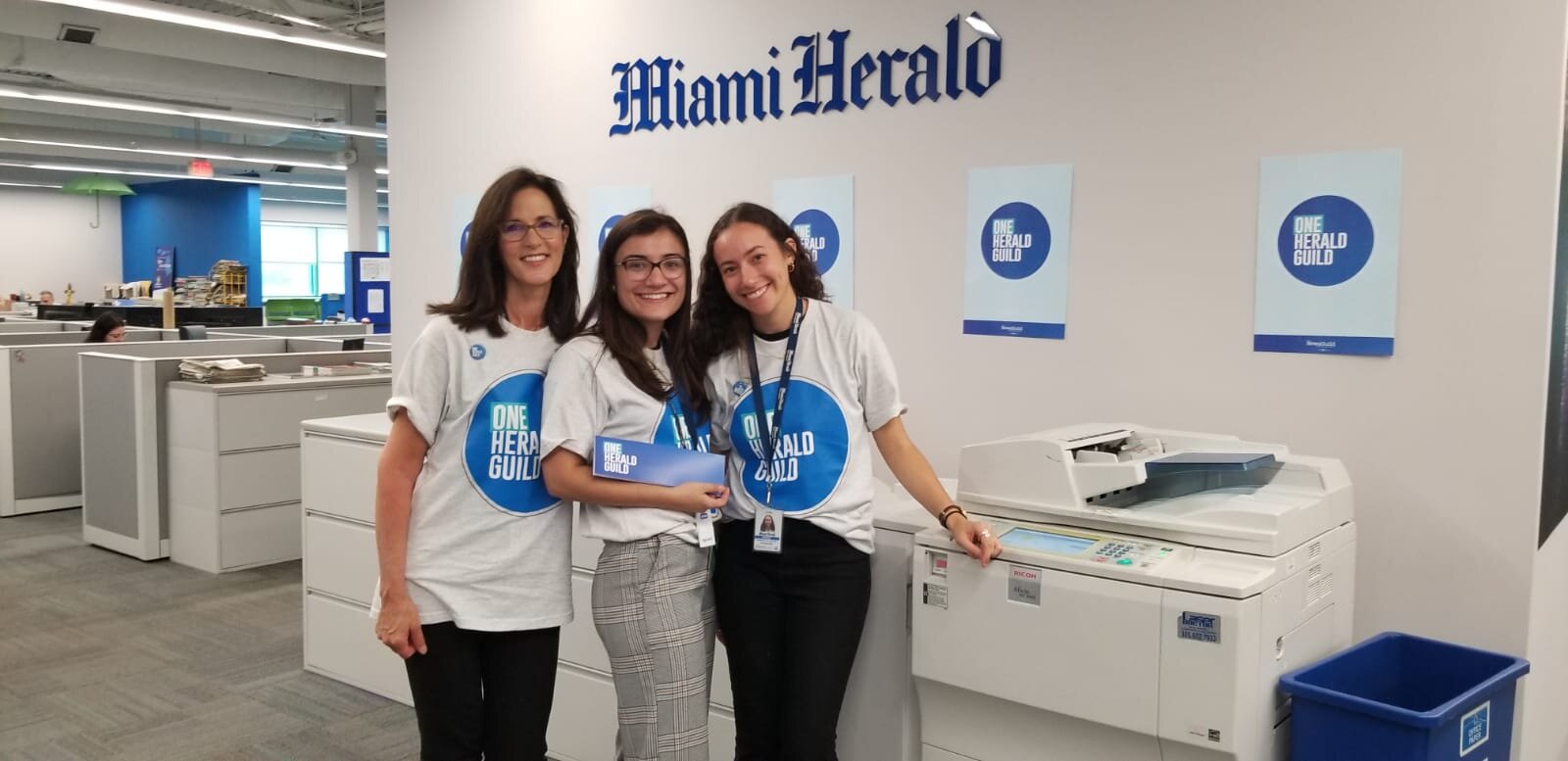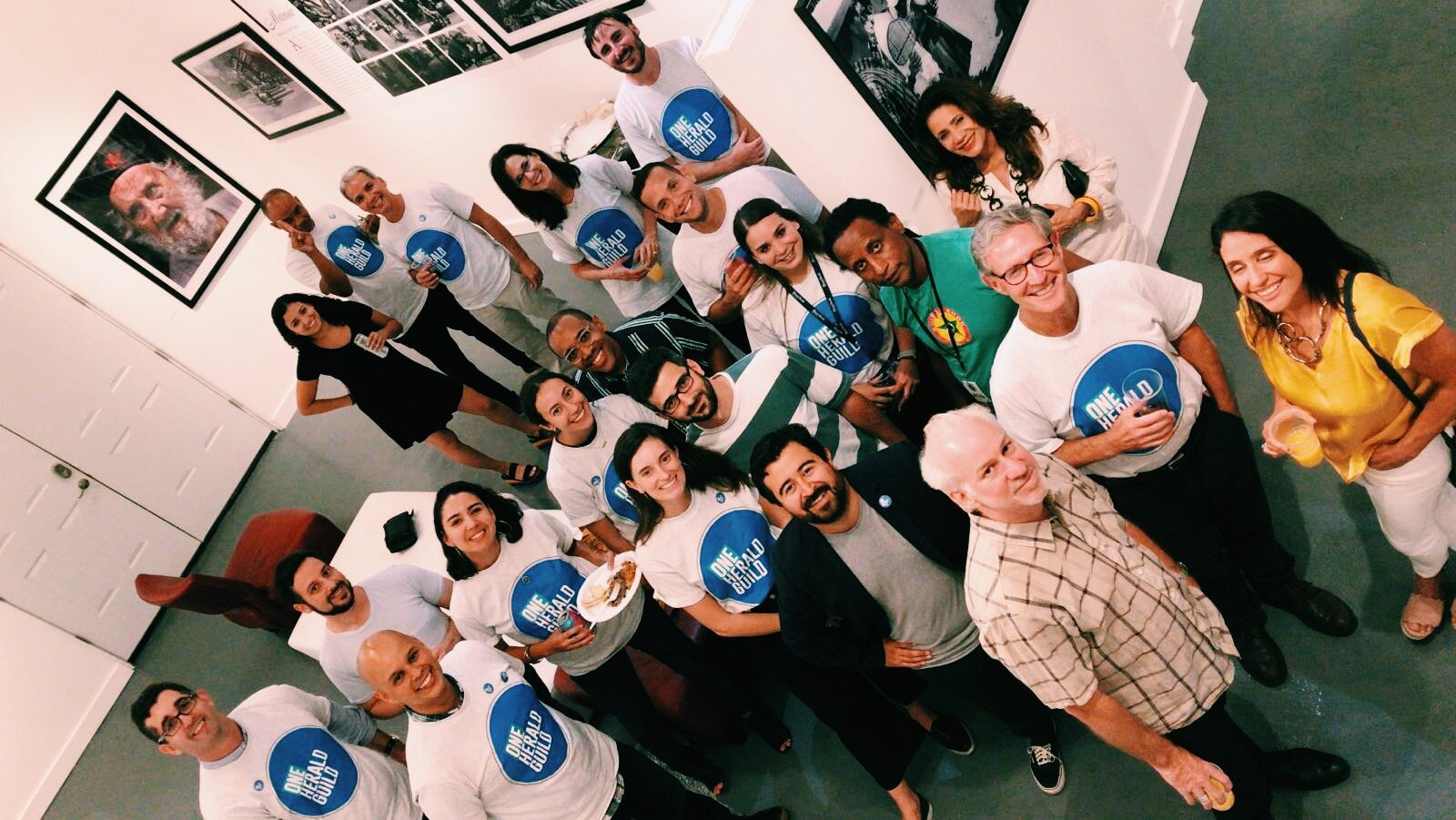Frequently Asked Questions
Why are we unionizing?
We are forming our union to have a say in the direction of our newsroom. One Herald Guild will negotiate directly with McClatchy for fair pay, benefits, vacation time, reporting resources, and strong editorial principles for all staff. We will have a seat at the table so that we can hold our corporate owners accountable for the financial decisions that impact our news gathering and journalism and to better advocate for more resources to serve our readers.
Who is leading the union?
Staff of el Nuevo Herald and the Miami Herald are the union. Staff will elect representatives to form a bargaining committee that will negotiate with McClatchy for our first contract. All contract decisions will be voted on by all union members.
Can we have a union in Florida?
Yes! In fact, three other Florida newsrooms have unionized in the last three years: Florida Times-Union, Sarasota Herald-Tribune, and the Lakeland Ledger. Now it’s our turn.
Will the union further stress McClatchy’s finances and force the company to cut jobs or close our newsroom?
We believe that McClatchy has the money to pay staff fairly, regardless of race, gender or age, and provide the resources we need to do our jobs well.
No one in our newsroom should have to work two jobs or buy their own equipment while our CEO took home $2.8 million in 2018 and was awarded a $35,000 monthly stipend this year. We will negotiate for salaries that allow our staff to live comfortably in the city that we cover.
If during negotiations, the company says they can’t afford the pay we are asking for, we will ask them to prove it by showing us their books. Having a union allows us to negotiate on an even playing field.
Will this affect the good relationship I have with my manager?
We will be bargaining with McClatchy, not the editors and managers in our newsroom. At the Herald, our editors are dedicated to good, hard-hitting journalism that serves the community in which we live. So are we. And that’s why we are forming this union – in order to have the resources and respect necessary to do our jobs even better.
Our goal is to improve working conditions and wages for everyone in the Herald news organization, regardless of the relationship individuals have with managers.
Will the unit make me go on strike?
Every action we take will be voted on by the entire union. Taking an action like a strike is something we would decide democratically as a group. There are a variety of actions we can take to show McClatchy our strength. Strikes at other union publications have been rare.
Can I be punished for supporting the union?
No. Under federal law, it’s illegal to retaliate against an employee for organizing. Any actions taken against an employee – change in schedule, workload, responsibilities, pay – that are seen as retaliatory are illegal. The more openly supportive you are, the more protected you are under these laws. Your colleagues are here to support you and fight for you.
How much are union dues and what are they for?
Union dues are approximately 1.3% of annual salary You will not start paying dues until we have a contract in place and union members have voted to ratify it.
In Florida, although you cannot be required to pay union dues, you will still get many of the benefits of having a unionized workplace. Dues pay for NewsGuild representatives, lawyers, and the operating expenses necessary to negotiate and enforce our contract.
Will supporting One Herald Guild erode my impartiality as a journalist?
No. This union is about improving our newsroom and our coverage to better meet the needs of our community. Journalists can bargain with the corporation that owns their newspaper and cover the community in which they live and work fairly.
Reporters at at least four McClatchy newspapers – Sacramento Bee, Fresno Bee, Modesto Bee and the Lexington Herald-Leader – have unions along with reporters at dozens of other respected news outlets across the country, including Associated Press, Reuters, New York Times, Washington Post, Baltimore Sun, Chicago Tribune, Los Angeles Times.


